How to Land Your First Cloud Job: A Step-by-Step Guide
February 28, 2025
Blog
The cloud computing industry is booming, with companies worldwide adopting cloud solutions at an unprecedented rate. Whether you’re transitioning from a different IT field or starting fresh, landing your first cloud job can be challenging but highly rewarding.
In this guide, we’ll break down the essential steps to help you kickstart your cloud career, including:
✅ The skills you need
✅ Certifications to pursue
✅ Job search strategies
✅ Networking tips to increase your chances of getting hired
Why Choose a Career in Cloud Computing?
High Demand & Job Security – Companies are moving to the cloud rapidly, creating a strong demand for skilled professionals.
Competitive Salaries – Cloud engineers and architects earn some of the highest salaries in tech.
Diverse Career Paths – Roles include Cloud Engineer, DevOps Engineer, Solutions Architect, Security Specialist, and more.
Work Flexibility – Many cloud jobs allow remote work and flexible schedules.
Step 1: Learn the Fundamentals of Cloud Computing
Before applying for cloud jobs, you need a solid foundation in cloud concepts. Start by understanding:
🔹 Cloud Service Models – IaaS (Infrastructure as a Service), PaaS (Platform as a Service), SaaS (Software as a Service).
🔹 Major Cloud Providers – AWS, Microsoft Azure, and GCP.
🔹 Basic Networking Concepts – VPC, subnets, firewalls, DNS, load balancers.
🔹 Linux & Command Line – A must-have skill for managing cloud servers.
🔹 Security Basics – Identity & Access Management, encryption, compliance.
📚 Recommended Free Learning Resources:
AWS Skill Builder (AWS Training & Certification)
Microsoft Learn (Azure Fundamentals)
Google Cloud Skills Boost
Step 2: Get Certified to Stand Out
Certifications help validate your skills and make your resume stand out. Start with entry-level cloud certifications:
🏅 AWS Certified Cloud Practitioner (CCP) – Best for beginners, covers AWS fundamentals.
🏅 Microsoft Azure Fundamentals (AZ-900) – Covers Azure basics.
🏅 Google Associate Cloud Engineer – Focuses on GCP essentials.
Once you’re comfortable, progress to role-specific certifications (for AWS):
🎯 AWS Solutions Architect Associate (SAA-C03) – Ideal for architecture roles.
🎯 AWS Certified Developer Associate (DVA-C02) – Focuses on cloud development.
🎯 AWS Certified SysOps Administrator (SOA-C02) – Perfect for cloud operations.
📌 Tip: Hands-on experience is more important than the certificate itself.
Step 3: Gain Hands-On Cloud Experience
Hiring managers prioritize real-world experience. Here’s how to get practical skills:
🚀 Create an AWS Free Tier Account – Experiment with EC2, S3, Lambda, and IAM.
🚀 Deploy a Web App on AWS, Azure, or GCP – Try hosting a website using S3 (AWS), Cloud Storage (GCP), or Azure Storage.
🚀 Build CI/CD Pipelines – Use AWS CodePipeline or GitHub Actions.
🚀 Work on Open-Source Projects – Contribute to GitHub repositories.
📌 Pro Tip: Showcase your cloud projects on GitHub or a personal portfolio website to impress recruiters. Also, check out our other blog: How to Get Started with AWS.
Step 4: Build a Strong Resume & LinkedIn Profile
1 in 5 people judge a book by its cover – that’s why a good LinkedIn profile or a clear resume is important.
📄 Key Elements of a Strong Cloud Resume:
✔ Certifications & Cloud Projects
✔ Relevant Skills (AWS, Terraform, Docker, Kubernetes, CI/CD)
✔ Hands-on Experience (Even personal projects count!)
✔ Achievements & Contributions (Mention contributions to cloud communities)
📌 Optimize Your LinkedIn Profile for Recruiters:
🎯 Use “Aspiring Cloud Engineer | AWS Certified | DevOps Enthusiast” in your headline.
🎯 Write a summary showcasing your skills, certifications, and projects.
🎯 Connect with cloud professionals and recruiters.
Step 5: Network & Join Cloud Communities
Tech communities help you land job opportunities faster. Being active in local and online groups provides:
🔗 Job Referrals – Many companies prefer hiring from within their network.
🔗 Mentorship – Learn from experienced cloud engineers.
🔗 Exclusive Job Postings – Many job offers aren’t publicly posted.
📌 Check our other blog: Networking in Tech: The Power of Local Communities.
Step 6: Apply for Cloud Jobs & Prepare for Interviews
🔍 Where to Find Entry-Level Cloud Jobs:
AWS Careers
Azure Jobs
Google Cloud Jobs
LinkedIn Jobs & AngelList (for startups)
Tech job boards: Indeed, Glassdoor, Stack Overflow Jobs
How to Ace Cloud Job Interviews:
✅ Common Cloud Interview Questions:
Explain the difference between EC2 and Lambda.
What are security best practices for AWS S3?
How do you troubleshoot high latency in a cloud application?
✅ Technical Assessments:
Be prepared for hands-on coding tests in Python, Bash, or Terraform.
Use the STAR Method for behavioral interviews (Situation, Task, Action, Result).
📌 Tip: Apply for internships or junior roles if you’re struggling to land your first cloud job.
Final Thoughts
Landing your first cloud job requires a mix of technical skills, hands-on practice, networking, and persistence. By getting certified, building projects, and joining active cloud communities like ACC Lebanon, you’ll significantly increase your chances of success.
📢 Take the first step today!
Start learning, connect with cloud professionals, and apply for your first role.
Join ACC Lebanon on Meetup and Whatsapp, you can also follow us on Instagram!
